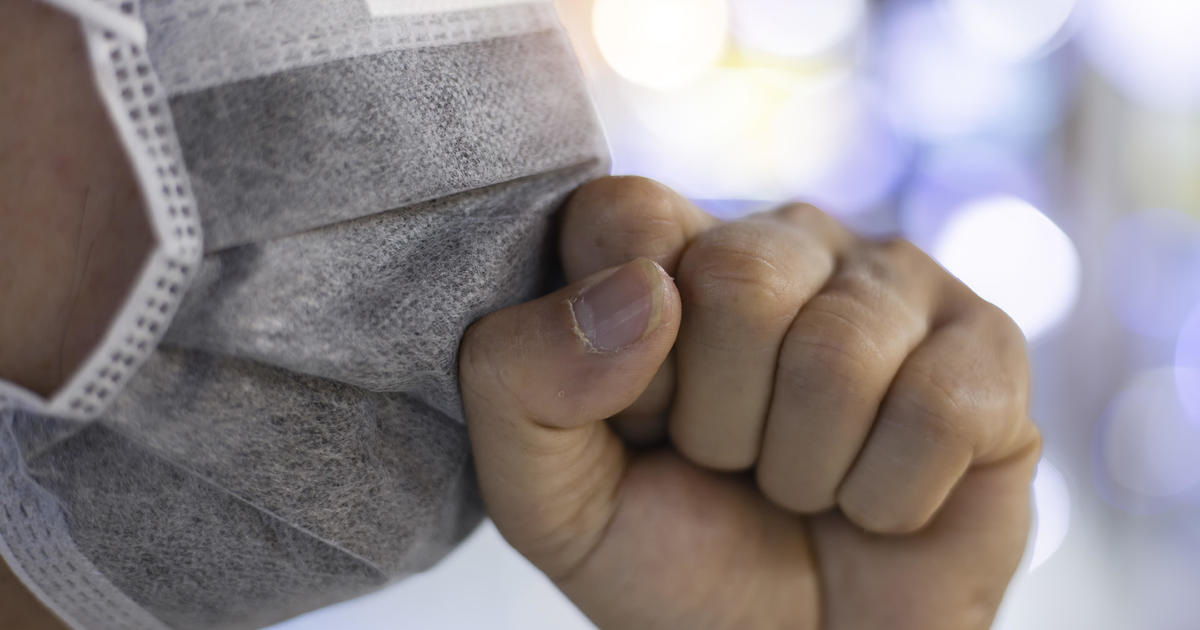Here is the study the article references:
Saved you a click:
A common allele of HLA is associated with asymptomatic SARS-CoV-2 infection
We observed that individuals carrying this common allele (approximately 10% in individuals with European ancestry) are more than twice as likely to remain asymptomatic after SARS-CoV-2 infection compared with those who do not, and a notable effect of HLA-B*15:01 homozygosity increasing the chance of remaining asymptomatic by more than eight times.
Together, our results strongly support the hypothesis that HLA-B*15:01 mediates asymptomatic COVID-19 disease through pre-existing T cell immunity due to previous exposure to HKU1-CoV and OC43-CoV.
Thank you, because the journal article is a pretty long read and rather technical, if you’re looking at the methodology and everything else. That’s a nice succinct summary
Interesting. I’ve never had any Covid symptoms and am from Europe originally.
I found this research interesting because of personal anecdote:
My family and I have joked that my mom must have some kind of immunity to covid. Before a vaccine was available, she had several direct (and sometimes lengthy) exposures… but never any (noticeable) symptoms or illness. And after being vaccinated with the monovalent rounds, she had several direct exposures to omicron… and still nothing
I myself have worked the front lines as an ICU nurse in the US since the first wave, and have never had covid, that I know of. Never symptomatic and never tested positive (granted, I am much more fastidious in regards to infection prevention). The kicker on my end is that my wife is immunosuppressed, and she also has never gotten covid, even with me working covid units and coming home to her (also why I have been so incredibly anal about not bringing it home).
Could be luck, or anything in-between, but I still wonder if my mom and I are resistant. We both have had many (sometimes severe) respiratory infections when I was growing up, and I’ve wondered if those exposures to other Corona viruses helped train our immune systems.
Like I said, that’s my personal anecdote. We both still get every vaccine for covid-19 that becomes available, because fuck all that. But I’ve always been curious what future studies of the immune system might reveal. Because we have been wildly lucky, all things considered
Yeah I feel my family is one, my wife is even a trainee nurse and hasn’t brought it home, even once she sat next to a classmate for 4hrs who was clearly symptomatic with no mask, kids classes at school have been filled with it, and it’s gone through all my work colleagues, still none of us have tested positive yet
That’s like me. As far as I know, I’ve never had COVID. I worked for an IT Managed Service Provider, which is like contracted IT for other businesses, as a field tech from Nov 2019 to March 2021; pretty much the major arc of the pandemic. While we were in lockdown at home in April/May 2020, I was otherwise in and out of our clients’ offices, often in close proximity to them, working on their workstation computers and other equipment. We were “Essential Employees” in our state. At first, no one, even clients knew anyone who had COVID, but I saw the “noose tightening.” A client’s friend or acquaintance or relative got COVID. Then it was someone in their immediate family. Then it was them who had gotten COVID. IIRC, I had at least one coworker out of like 13 of us who got COVID.
But I never did get it. Or at least I was asymptomatic. And I didn’t take any hefty precautions other than masking up, using hand sanitizer, and washing hands frequently. And it’s not like my masks were N95s. I either used cloth masks or those disposable ones. I even flew a couple times during the pandemic, though admittedly, the airports and planes were largely empty anyway.
I did get vaccinated as soon as I could in my state. so like March 2021. I did keep up with all my vaccinations; I’ve had two boosters. I was the first at my company and in my immediate family to get vaccinated. But that was toward the end of my time at the MSP anyway. My next job was/is an office job where we largely were WFH or Hybrid. Interestingly, I’ve seen more COVID among my current coworkers than my previous coworkers, even though my current coworkers tended to be more fastidious about precautions and getting vaccinated and social distancing and isolating and all that, while my previous were much less so (they weren’t anti-maskers, nor anti-vaxxers I don’t think).
I also tend not to get sick very often. At least not like colds/flus. I go years between cold-like illnesses, though I got sick a few weeks ago. According to a couple home tests, it wasn’t COVID though. Just a summer cold. I was also in Chicago while they had the worst air quality in the world from the Canadian wildfire smoke. I’m sure that didn’t help.
Mmmh can I test myself, I should have had it already due how close I was most of the time 🤔
I had the same thought. The curiosity kills me
You can get an antibody test done, but it’d have to be within a few weeks of catching it, or when you thought you might have caught it.
I was referring to genetic testing for the T-Cell alleles (that the study refers to) that were more present in some of the population, before Covid hit.
I’ve already been vaccinated and exposed, so I’m not entirely sure how that effects the results of testing for those alleles now (I’m no immunologist)… but just curious
And just a side note for clarity: “Antibody” testing will detect prior infection and/or vaccination. “Antigen” testing can detect current infection, which is what I think you’re referring to. It gets confusing, and I STILL get tripped up with my terminology… and I work directly with covid-19 patients (in the hospital) and the testing to see if we can take them out of isolation precautions. I actually just had to do a swab for “Antigen PCR” testing 2 days ago, which is why it’s kinda fresh in my brain right now. So “antibody” means exposed (either infection or vaccination), but doesn’t really mean “contagious”. “Antigen” means possibly still contagious… I’m pretty sure. This is not medical advice lol
This is interesting and goes a long way to explain symptomless covid.
It may be moot because of the vaccines but is it possible to “share” this immunity in ways other than heredity? Can we make it injectable?
The study was specifically using samples they had before the pandemic hit. They did go into more studies (to try and verify their findings) that did include a vaccinated person, but they were mainly focused on samples before the pandemic/vaccines.
They go into the possible short-fallings of their studies, but nonetheless it does show promising interest
And idk if it could become something “injectable”, but I think that would be the goal. Or to at least have a better understanding of how to make vaccines more effective/targeted. I’m not sure, but I’ve always said from the beginning of the pandemic, “I can’t wait to see the studies that will come from this over the next following years/decades”.
Is there a known downside to this mutation? Like increased risk of autoimmune disorders?
I didn’t see anything in the study looking at that aspect; but we may see future studies that reveal more, if interest in those alleles grows.
The immune system really is incredibly complex, so you just never know. Maybe someone will do a meta-study that looks at some other common denominators among the sample groups.





